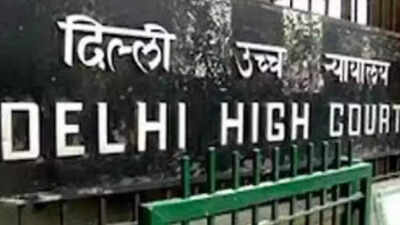Top Searches
- News
- City News
- delhi News
- Delhi HC questions move to book those who housed Tablighis
Delhi HC questions move to book those who housed Tablighis
Delhi HC questions move to book those who housed Tablighis

Delhi high court
NEW DELHI: The Delhi high court on Friday questioned the city police’s move to book Indian citizens for housing foreigners who attended the Tablighi Jamaat event last year amid the Covid-19 lockdown.
“Suddenly, when a lockdown is imposed, where does one go after that? What is the offence committed? Is there any bar on Madhya Pradesh residents on staying in Delhi in any mosque, temple or gurdwara? They can stay wherever they want. Was there a notice that everybody will throw out whosoever was staying (with them) ?” Justice Gupta said, pointing out that the government had not imposed a ban on people from staying at any particular place.
HC was hearing a batch of petitions to quash the FIRs against the hosts. It said the Jamaat attendees sought refuge before the lockdown was imposed and there were no allegations of them violating the orders restricting movement.
“I have brought out the point...you will tell me where is the violation when there is no question of changing places at that time? I can understand they went out, that they violated the (lockdown) notification. When lockdown was imposed, there was no bar on anyone residing (sic),” the court said and gave time to Delhi Police to file its response to the petitions.
The police's lawyer sought time to file a status report, and said that at the relevant time, there was a bar on any type of religious events.
The petitioners' lawyer said that since the Jamaat attendees began staying on the premises in question before the lockdown was imposed and none tested positive for Covid, no case was made out against her clients.
While some of the petitions for cancelling the FIRs are by individuals who had provided shelter to the foreigners and could not travel due to the subsequent lockdown, others are by people like managing committee members or caretakers of mosques who have been accused of providing housing facilities to the foreigners at mosques under the jurisdiction of the Chandni Mahal police station.
Earlier, the court had told Delhi Police to file a status report, indicating the role of each accused and as well as the duration of their stay, and whether the housing facility was given after or before lockdown orders were issued.
“Suddenly, when a lockdown is imposed, where does one go after that? What is the offence committed? Is there any bar on Madhya Pradesh residents on staying in Delhi in any mosque, temple or gurdwara? They can stay wherever they want. Was there a notice that everybody will throw out whosoever was staying (with them) ?” Justice Gupta said, pointing out that the government had not imposed a ban on people from staying at any particular place.
HC was hearing a batch of petitions to quash the FIRs against the hosts. It said the Jamaat attendees sought refuge before the lockdown was imposed and there were no allegations of them violating the orders restricting movement.
“I have brought out the point...you will tell me where is the violation when there is no question of changing places at that time? I can understand they went out, that they violated the (lockdown) notification. When lockdown was imposed, there was no bar on anyone residing (sic),” the court said and gave time to Delhi Police to file its response to the petitions.
The police's lawyer sought time to file a status report, and said that at the relevant time, there was a bar on any type of religious events.
The petitioners' lawyer said that since the Jamaat attendees began staying on the premises in question before the lockdown was imposed and none tested positive for Covid, no case was made out against her clients.
While some of the petitions for cancelling the FIRs are by individuals who had provided shelter to the foreigners and could not travel due to the subsequent lockdown, others are by people like managing committee members or caretakers of mosques who have been accused of providing housing facilities to the foreigners at mosques under the jurisdiction of the Chandni Mahal police station.
Earlier, the court had told Delhi Police to file a status report, indicating the role of each accused and as well as the duration of their stay, and whether the housing facility was given after or before lockdown orders were issued.
FacebookTwitterLinkedinEMail
Start a Conversation
end of article

